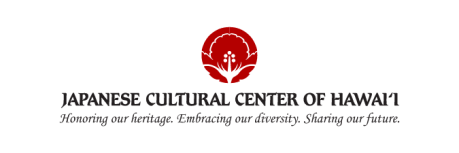Japanese translation services for koseki tohon and other documents are available at the JCCH Tokioka Heritage Resource Center. With the help of our dedicated volunteers the JCCH can assist with acquisition and translation of the koseki tohon from Japan.
Please note the JCCH does not have any genealogical research resources in-house. Before we can help, you must first visit the Consulate General of Japan in Honolulu to get your Issei ancestor's immigration card. (see "How do I get a koseki?")
If you have just begun your genealogical search, you should start at the Hawaiʻi State Archives, which contains all of the birth, death, and marriage records in the State of Hawaiʻi.
Koseki Frequently Asked Questions
What is a koseki tohon and why do genealogists need them?A koseki tohon is a Japanese family register. It’s a combination birth/death/marriage certificate for each member of a family. The koseki system was officially created during the Meiji Restoration in the 1870’s. This means that the koseki is helpful for anyone who wants to know more about any relatives their Issei ancestors left behind in Japan. For information beyond the 1800s you should consult with the local temple in your ancestor’s hometown. They often kept birth and death records. Koseki translation is the only genealogical assistance the JCCH can provide. We do not have the government records that genealogists usually need, and they should go to the Hawaiʻi State Archives instead. |
How do I get a koseki?1. Go to the Consulate General of Japan in Honolulu to get your Issei ancestor's immigration card. An immigration card is a document early Japanese immigrants filled out upon arrival in Hawaiʻi. It lists the name of the head of the family AND the family’s home address in Japan (honseki). Without this information, you cannot order a koseki. You will need to bring government documents that prove you are directly descended from their Issei ancestors. If you do not yet have documentation that proves a direct relationship, you should visit the Hawaiʻi State Archives or the Department of Health. For this reason, ordering the koseki is the last steps in researching your family history. Copies of the documents you provide the Japanese Consulate will also need to be sent to Japan to order the koseki. Japanese law says that koseki can only be released to those who can prove that they are direct descendants. This is to prevent discrimination against historically marginalized groups like the Burakumin, because that information is also recorded on the koseki. Please note that the Consulate General of Japan in Honolulu seems to be the only one that still has immigration cards. Other Consulates did not necessarily keep them or returned them to the Japanese government. If your family is not from Hawaiʻi, this method may not work for you. You need to have the exact address (not just a prefecture or city), so that we can find out exactly which town hall would have the koseki tohon. Japan has redistricted several times in the past 100 years, so the koseki tohon may not be at the town hall closest to the village’s former location. 2. Once you have the immigration card, please fill out a translation request form. 3. Once the translation is completed by our translators, you will need to send it to Japan via certified mail with the appropriate fees (in yen) included. The koseki will be sent to you, usually in 6-8 weeks. 4. Once you receive the koseki, you may also request a koseki translation. Requests are filled on a first-come, first-served basis. We do not translate documents for out-of-state patrons due to the handing of private identity documents. Fees will vary depending on the complexity of the file. |
Additional Resources:
|
